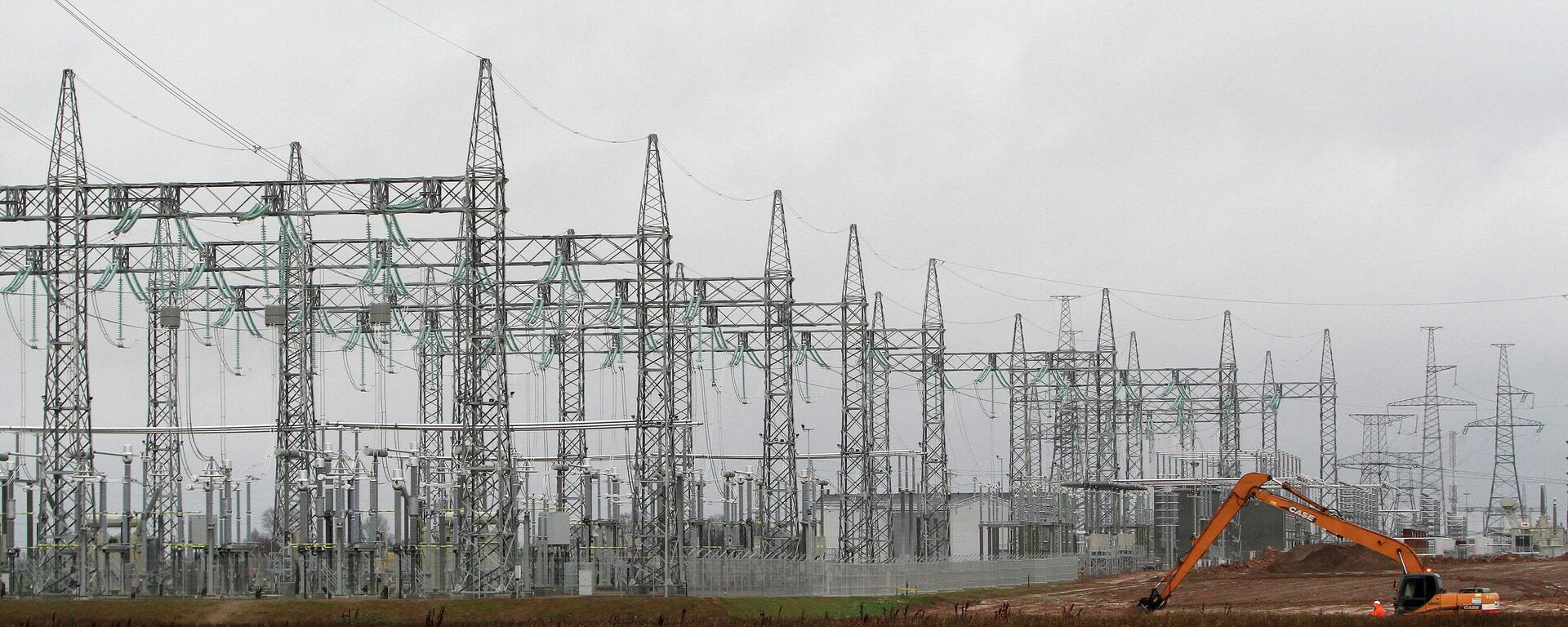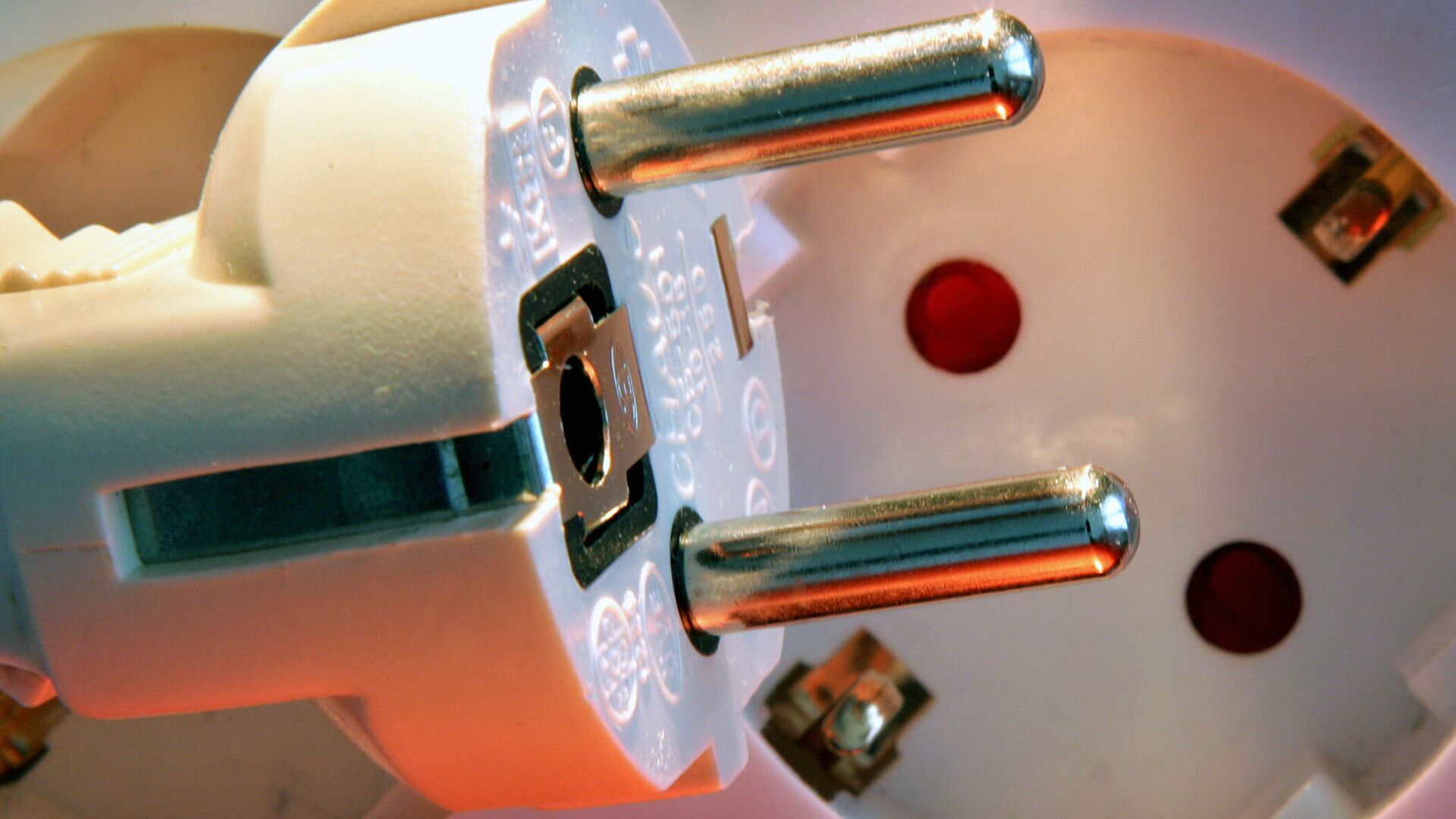https://sputnikglobe.com/20220426/baltics-binge-buying-russian-electricity-double-purchases-despite-repeated-vows-to-unplug-1095080427.html
Baltics Binge-Buying Russian Electricity, Double Purchases Despite Repeated Vows to Unplug
Baltics Binge-Buying Russian Electricity, Double Purchases Despite Repeated Vows to Unplug
Sputnik International
Latvia, Lithuania and Estonia are connected to Russia and Belarus via the BRELL electricity grid – a massive Soviet-era ring-shaped network of powerlines. The... 26.04.2022, Sputnik International
2022-04-26T18:17+0000
2022-04-26T18:17+0000
2022-04-26T18:17+0000
baltic
lithuania
latvia
estonia
electricity
https://cdn1.img.sputnikglobe.com/img/07e5/0c/1c/1091858717_0:134:2104:1318_1920x0_80_0_0_6ac1547ff96eeb6f39f4ee1cc8cefdb9.jpg
The Baltic States have dramatically increased purchases of Russian electricity, with deliveries doubling in March compared to the January’s consumption levels, Latvian TV3 has reported.According to the television channel’s calculations, Latvia Lithuania and Estonia purchased nearly 600,000-megawatt hours of Russian juice last month, notwithstanding promises by local energy company operators to restrict imports.TV3 indicated that plans to escape dependence on Russian electricity include a project by Estonia’s Fermi Energia to build a small nuclear reactor, with Riga considering joining the project. However, Latvian Economy Minister Janis Vitenbergs said that the project is “very far” from implementation.The project was announced in February 2021. However, discussions on the matter have been taking place since 2011. The small nuclear plant is expected to cost about $1 billion and generate about 300 Megawatts of electricity.In early March, Estonian grid operator Elering reported that the Baltic nations had reduced transmission capacity for electricity imports from Russia and Belarus to 300 megawatts.Several weeks later, in mid-April Latvian Prime Minister Krisjanis Karins said that unfortunately, “physical limitations” were preventing the country from disconnecting from BRELL, even though Riga was “politically ready” to do so. Karins said the plans to unplug the country from BRELL required a second connection between Poland and Lithuania, which is still being built.Last December, Lithuanian Energy Minister Dainius Kreivys promised that the Baltics could completely decouple themselves from BRELL by 2025. Lithuania, Latvia and Estonia signed a memorandum with Poland and the European Commission in 2018 to synchronize the Baltics’ electricity network with the Continental Synchronous Area – the power grid which connects most of the European Union.The Baltic region is no stranger to nuclear energy, with Lithuania operating the Soviet-built Ignalina Nuclear Power Plant – generating 2,600 Megawatts of electricity via its twin RBMK-1500 reactors, until the plant was shut down in 2009 via EU directive. The decommissioning of the plant has caused Vilnious a number of headaches, including a 1.5 billion euro hole in financing for phase two of decommissioning, which is expected to last until at least 2029. On the plus side, delays in the plant’s dismantling allowed it to be featured in the 2019 HBO smash hit miniseries ‘Chernobyl.’
https://sputnikglobe.com/20211208/baltics-to-completely-disconnect-from-russian-power-grid-by-2025-lithuanian-energy-minister-says-1091349856.html
lithuania
latvia
estonia
Sputnik International
feedback@sputniknews.com
+74956456601
MIA „Rossiya Segodnya“
2022
News
en_EN
Sputnik International
feedback@sputniknews.com
+74956456601
MIA „Rossiya Segodnya“
Sputnik International
feedback@sputniknews.com
+74956456601
MIA „Rossiya Segodnya“
baltic, lithuania, latvia, estonia, electricity
baltic, lithuania, latvia, estonia, electricity
Baltics Binge-Buying Russian Electricity, Double Purchases Despite Repeated Vows to Unplug
Latvia, Lithuania and Estonia are connected to Russia and Belarus via the BRELL electricity grid – a massive Soviet-era ring-shaped network of powerlines. The three countries have repeatedly vowed to end their dependency on Russian electricity, most recently promising to do so by 2025, but deadlines keep getting pushed back.
The Baltic States have dramatically increased purchases of Russian electricity, with deliveries doubling in March compared to the January’s consumption levels, Latvian TV3 has
reported.
According to the television channel’s calculations, Latvia Lithuania and Estonia purchased nearly 600,000-megawatt hours of Russian juice last month, notwithstanding promises by local energy company operators to restrict imports.
TV3 indicated that plans to escape dependence on Russian electricity include a project by Estonia’s Fermi Energia to build a small nuclear reactor, with Riga considering joining the project. However, Latvian Economy Minister Janis Vitenbergs said that the project is “very far” from implementation.
The project was
announced in February 2021. However, discussions on the matter have been taking place since 2011. The small nuclear plant is expected to cost about $1 billion and generate about 300 Megawatts of electricity.
In early March, Estonian grid operator Elering
reported that the Baltic nations had reduced transmission capacity for electricity imports from Russia and Belarus to 300 megawatts.
Several weeks later, in mid-April Latvian Prime Minister Krisjanis Karins
said that unfortunately, “physical limitations” were preventing the country from disconnecting from BRELL, even though Riga was “politically ready” to do so. Karins said the plans to unplug the country from BRELL required a second connection between Poland and Lithuania, which is still being built.
Last December, Lithuanian Energy Minister Dainius Kreivys promised that the Baltics could completely decouple themselves from BRELL by 2025. Lithuania, Latvia and Estonia signed a memorandum with Poland and the European Commission in 2018 to synchronize the Baltics’ electricity network with the Continental Synchronous Area – the power grid which connects most of the European Union.

8 December 2021, 11:58 GMT
The Baltic region is no stranger to nuclear energy, with Lithuania operating the Soviet-built Ignalina Nuclear Power Plant – generating 2,600 Megawatts of electricity via its twin RBMK-1500 reactors, until the plant was shut down in 2009 via EU directive. The decommissioning of the plant has caused Vilnious a number of headaches, including a 1.5 billion euro hole in financing for phase two of decommissioning, which is expected to last until at least 2029. On the plus side, delays in the plant’s dismantling allowed it to be featured in the 2019 HBO smash hit miniseries ‘Chernobyl.’


